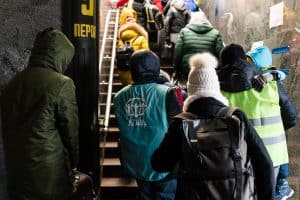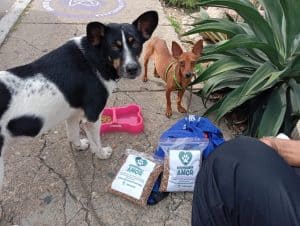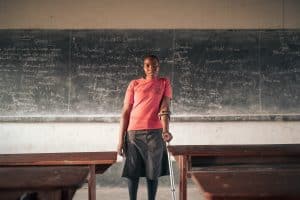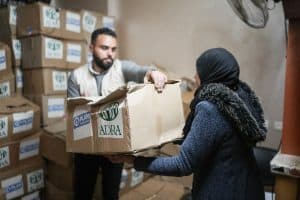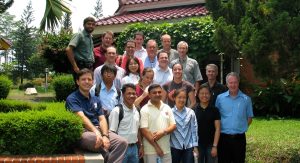As we enter hurricane season, millions of families face the risk of powerful storms. Hurricanes bring dangerous winds, flooding, and displacement. While ADRA responds to communities devastated by hurricanes, we also want to help you keep your family safe.
The same Emergency Response methods ADRA uses in large-scale humanitarian interventions can also be applied at the individual and community level.
Here are 10 steps you can take to prepare for hurricane season—and how ADRA stands ready to help communities who cannot prepare on their own.
1. Understand Your Needs & Assess Your Risk
At ADRA, we never respond to a disaster without first assessing community needs and risks. You can apply the same principle to your own home and family.
Here’s how:
- Identify the essentials your family needs to survive and thrive during an emergency. Look for gaps—because gaps can be deadly.
- Formula to remember: My Needs – What I Already Have = The Gaps
- Know your risk zones. Is your home located in a flood, fire, tsunami, or evacuation zone?
- Learn the safest evacuation routes in your area.
- Bookmark your local emergency management office and reliable weather apps.
- Research what services are offered by your local government. Where are shelters located? Visit them ahead of time if possible, so you’re not guessing during an emergency.
2. Make an Emergency Plan & Share It (Coordinate)
ADRA always coordinates with partners, local leadership, and other responders to avoid mistakes and duplicate efforts. You should do the same.
- Every family member should know where to meet, who to call, and what to do if you must evacuate.
- Practice your plan before hurricane season peaks.
- Get buy-in from everyone impacted—agreement is critical.
- Share your plan with extended family, neighbors, and even your pastor. Keep it simple:
- Example: “If communication is cut off and you don’t hear from me within 18 hours, I plan to be at this location. If not, here’s Plan B.”
- Make “THE PLAN” a physical document. Print it, laminate it, and post it if necessary. Include phone numbers—most of us can’t recall them by memory if our cell phone dies.
3. Build a Disaster Thrive Kit & Go-Bag
These are two different things—and both are essential.
Go-Bag (Grab-and-Go Essentials)
Keep this next to your bed in a waterproof/fireproof pouch:
- Birth certificates, passports, and important documents (also scan and store securely online)
- Cash (at least one week’s worth) and a backup credit card
- Spare car key
- Prescription medication
- Glasses/contact lenses
- Flashlight and batteries
Thrive Kit (Shelter-Ready Supplies)
Enough for at least three days:
- Water, non-perishable food, hygiene items, first aid kit, crank radio
- Cash and extra fuel
- N95 masks, goggles, gloves
- Baby wipes, earplugs, and comfort items (coffee packets, cards, a small book)
- Change of clothes and packable raincoat
- A laminated copy of your emergency plan
Tip: Visualize living in a shelter for three days. What would make that more bearable?
4. Secure Your Home
- Board up windows and reinforce doors.
- Move outdoor items inside to prevent them from becoming dangerous projectiles.
5. Prepare for Power Outages
- Stock batteries, solar lamps, and backup chargers.
- If possible, invest in a generator—and keep it well maintained.
6. Don’t Forget Pets
- Pack food, carriers, leashes, and ID tags.
- Remember: not all shelters accept pets, so plan ahead.
7. Stay Informed
At ADRA, we constantly monitor forecasts and early warning systems. You should too.
- Follow official alerts from NOAA, FEMA, and local authorities.
- Avoid misinformation during disasters—it can be dangerous.
8. Motors Matter
At ADRA, we know that half a tank is an empty tank during a disaster.
- Keep vehicles in good working order and fueled in advance.
- Don’t forget boat engines or generators—maintain them before you need them.
9. Help Your Neighbors
- Check in on elderly, disabled, or vulnerable neighbors.
- Organize a buddy system so each household has someone looking out for them.
10. Mental Health Preparation
Disasters don’t just impact physical safety—they take a toll on mental health. ADRA supports impacted communities, but we also take care of ourselves and are aware of signs of trauma and stress in our colleagues.
- Identify your coping strategies in advance.
- Research free and accessible resources now, before you need them.
- Remember: you can’t always control your feelings during a crisis, but you can control what support you have in place.
ADRA in Action
When hurricanes strike vulnerable communities, ADRA and Adventist Community Services provide food, shelter, clean water, and long-term recovery support.
“Failing to plan is the same as planning to fail. Don’t just survive. Be prepared to thrive during an emergency.”
— Walter Alves, Emergency Response Program Manager for the Americas, ADRA International
Follow us on Instagram to see how we work and how we support thousands of communities worldwide during emergencies.
Conclusion
Being prepared is one of the best ways to protect your family this hurricane season. Take action now—and remember that countless families worldwide don’t have the resources to prepare. That’s where ADRA steps in.
Learn More:
Hurricane Recovery: ADRA Partners with Adventist Community Services to Support Hurricane Victims in North America
Hurricane Beryl: ADRA Brings Relief to Devastated Communities
